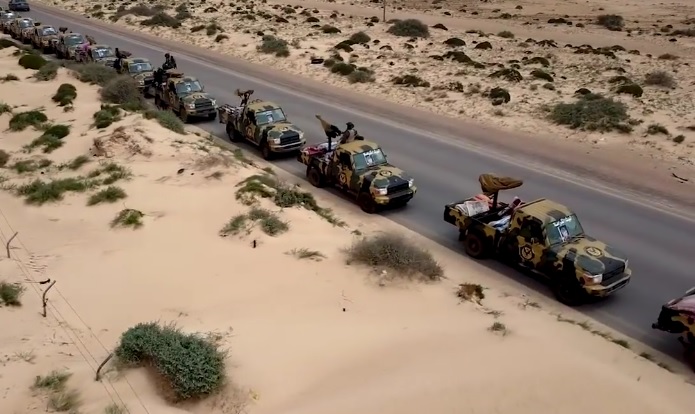
France backing Haftar bid to rule Libya?
Libya’s weak UN-backed government is bracing for an offensive on Tripoli by the country’s strong eastern warlord Khalifa Haftar, generally referred to as a “renegade general.” Haftar ordered his forces amassed on the outskirts to advance on Tripoli and “conquer” it whether by peaceful means or force. Militias loyal to the “official” government are scrambling to erect defenses. This comes weeks after hundreds of Chadian rebel fighters were expelled from southern Libya by Hafter’s forces, and reportedly surrendered to Chad’s French-backed military. Already backed by Russia, Haftar now appears to be making a bid for French support as the man who can bring stability to Libya.


